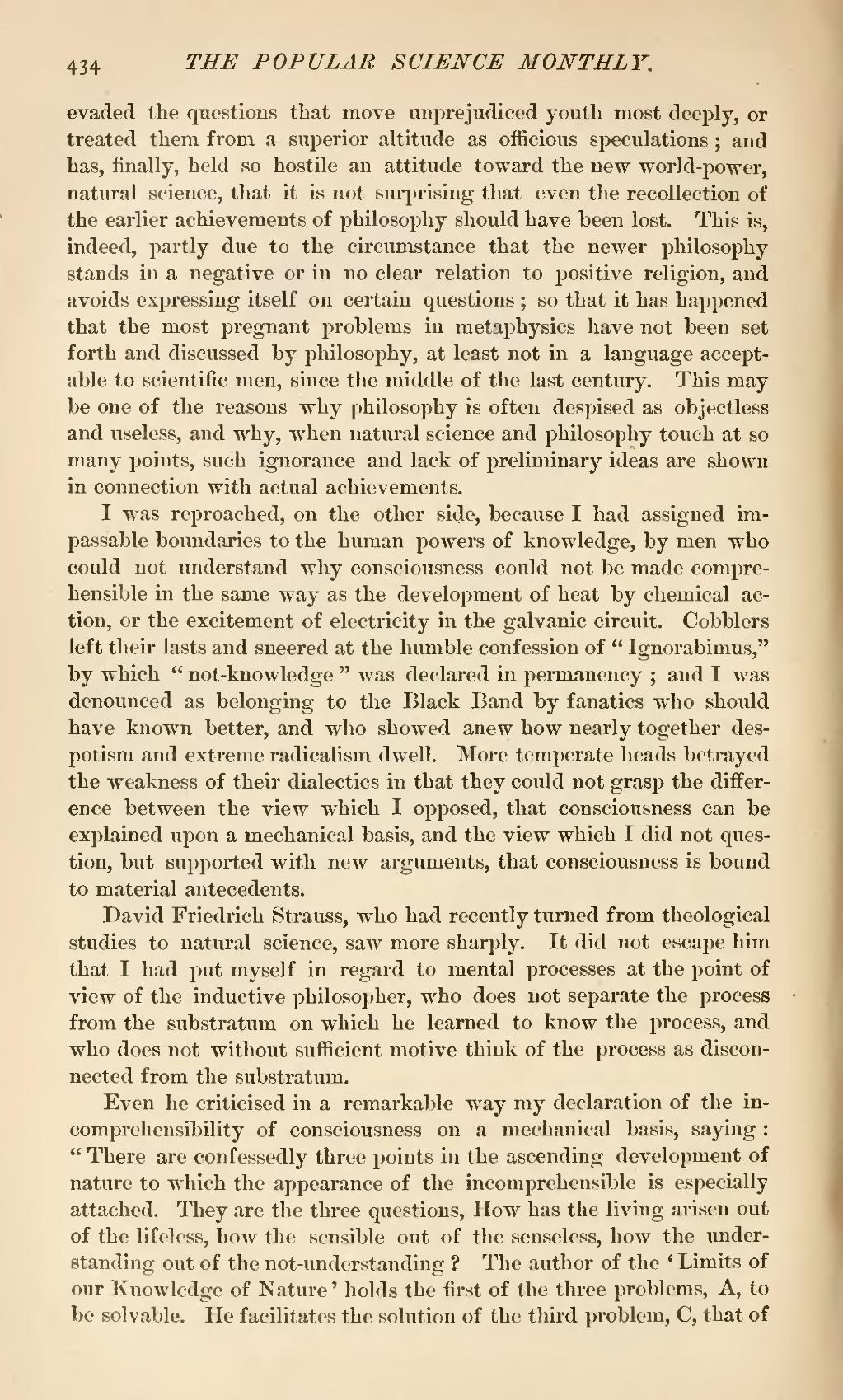evaded the questions that move unprejudiced youth most deeply, or treated them from a superior altitude as officious speculations; and has, finally, held so hostile an attitude toward the new world-power, natural science, that it is not surprising that even the recollection of the earlier achievements of philosophy should have been lost. This is, indeed, partly due to the circumstance that the newer philosophy stands in a negative or in no clear relation to positive religion, and avoids expressing itself on certain questions; so that it has happened that the most pregnant problems in metaphysics have not been set forth and discussed by philosophy, at least not in a language acceptable to scientific men, since the middle of the last century. This may be one of the reasons why philosophy is often despised as objectless and useless, and why, when natural science and philosophy touch at so many points, such ignorance and lack of preliminary ideas are shown in connection with actual achievements.
I was reproached, on the other side, because I had assigned impassable boundaries to the human powers of knowledge, by men who could not understand why consciousness could not be made comprehensible in the same way as the development of heat by chemical action, or the excitement of electricity in the galvanic circuit. Cobblers left their lasts and sneered at the humble confession of "Ignorabimus," by which "not-knowledge" was declared in permanency; and I was denounced as belonging to the Black Band by fanatics who should have known better, and who showed anew how nearly together despotism and extreme radicalism dwell. More temperate heads betrayed the weakness of their dialectics in that they could not grasp the difference between the view which I opposed, that consciousness can be explained upon a mechanical basis, and the view which I did not question, but supported with new arguments, that consciousness is bound to material antecedents.
David Friedrich Strauss, who had recently turned from theological studies to natural science, saw more sharply. It did not escape him that I had put myself in regard to mental processes at the point of view of the inductive philosopher, who does not separate the process from the substratum on which he learned to know the process, and who does not without sufficient motive think of the process as disconnected from the substratum.
Even he criticised in a remarkable way my declaration of the incomprehensibility of consciousness on a mechanical basis, saying: "There are confessedly three points in the ascending development of nature to which the appearance of the incomprehensible is especially attached. They are the three questions, How has the living arisen out of the lifeless, how the sensible out of the senseless, how the understanding out of the not-understanding? The author of the 'Limits of our Knowledge of Nature' holds the first of the three problems, A, to be solvable. He facilitates the solution of the third problem, C, that of

